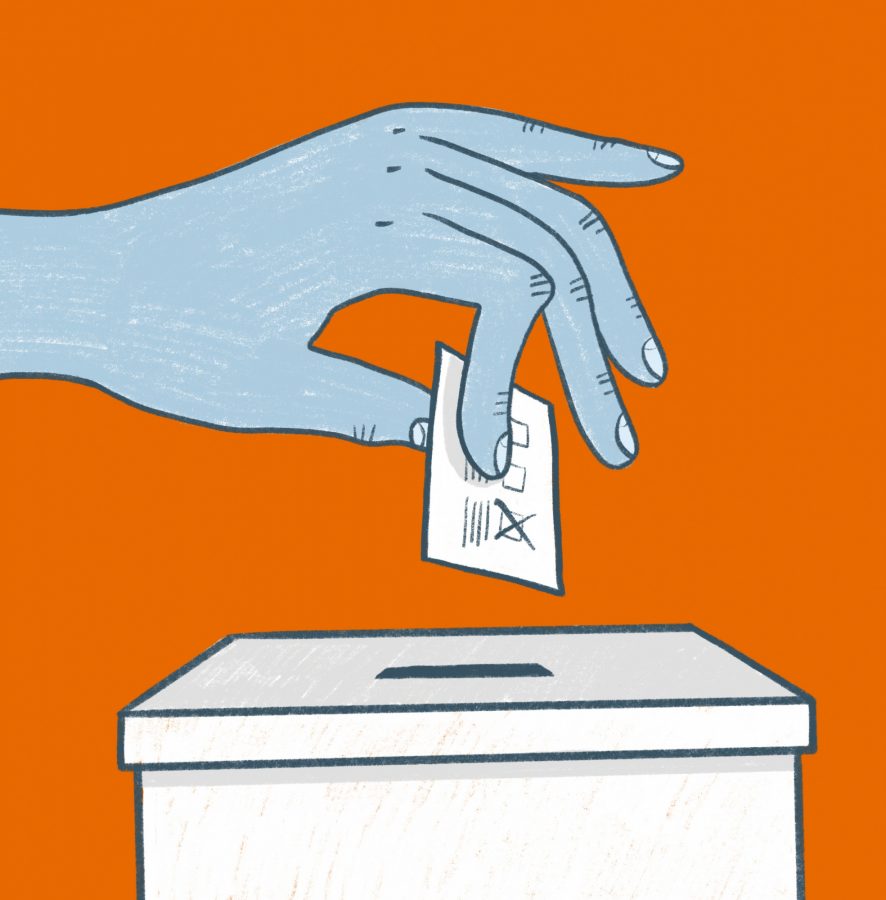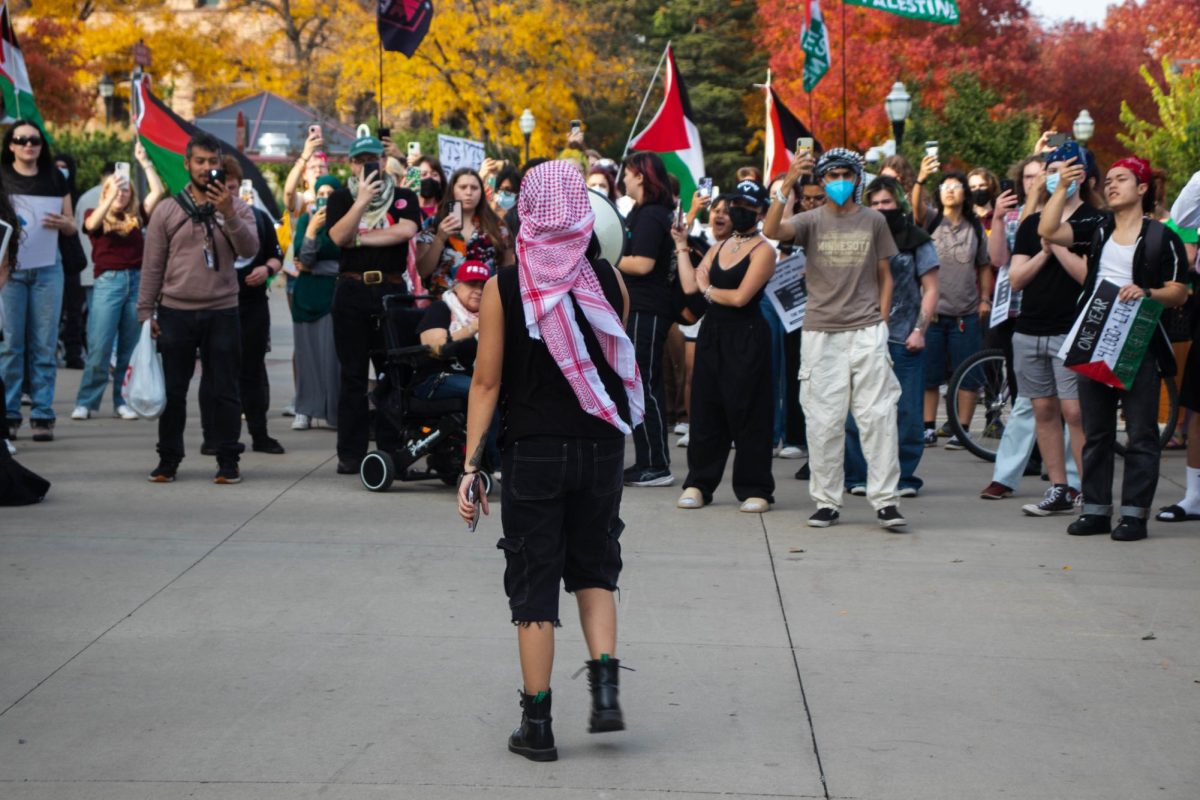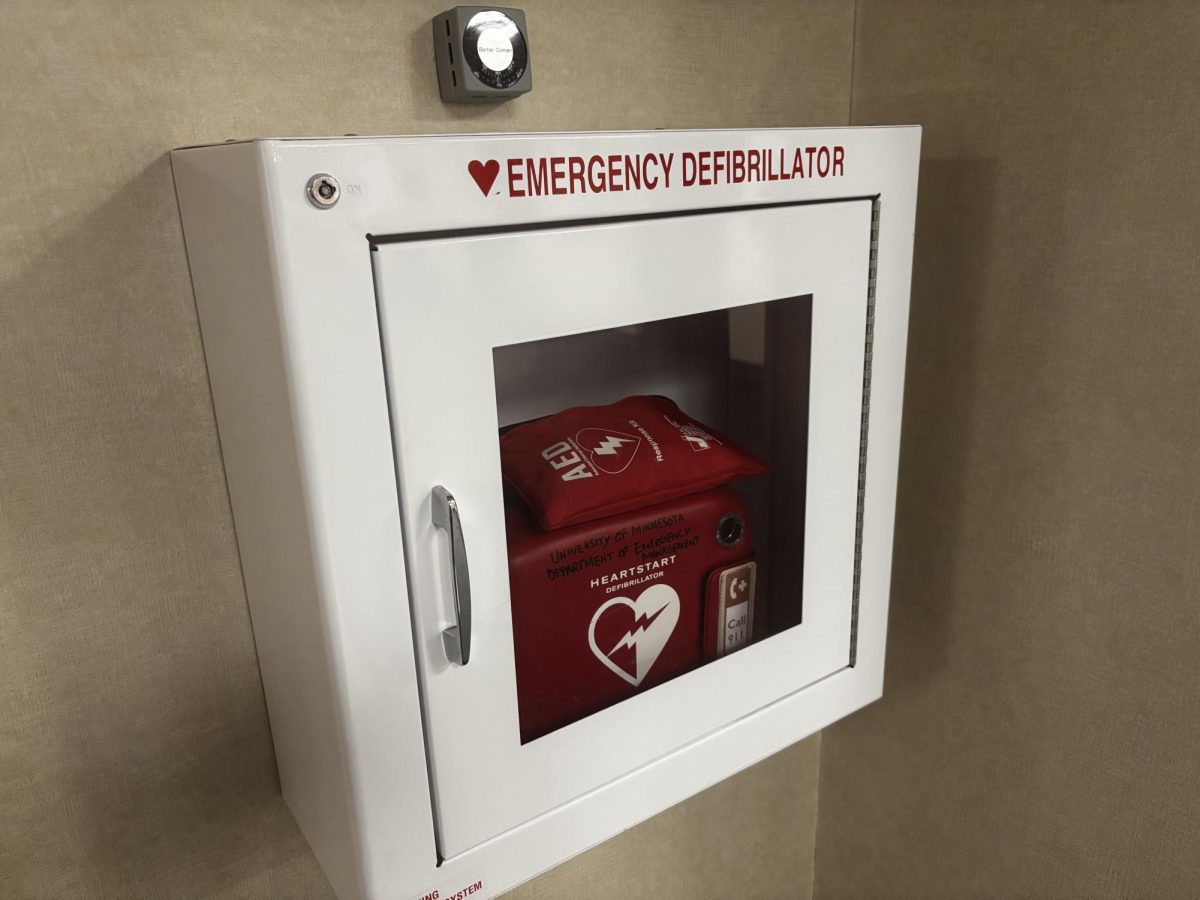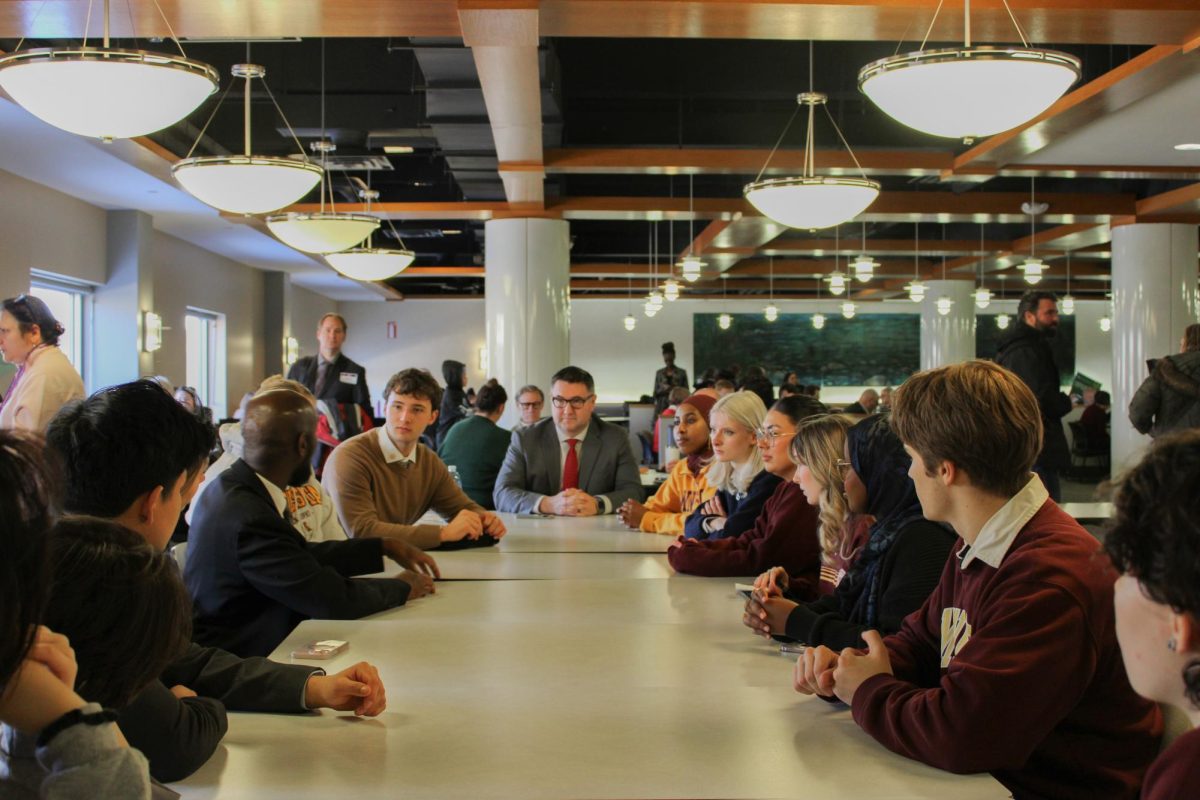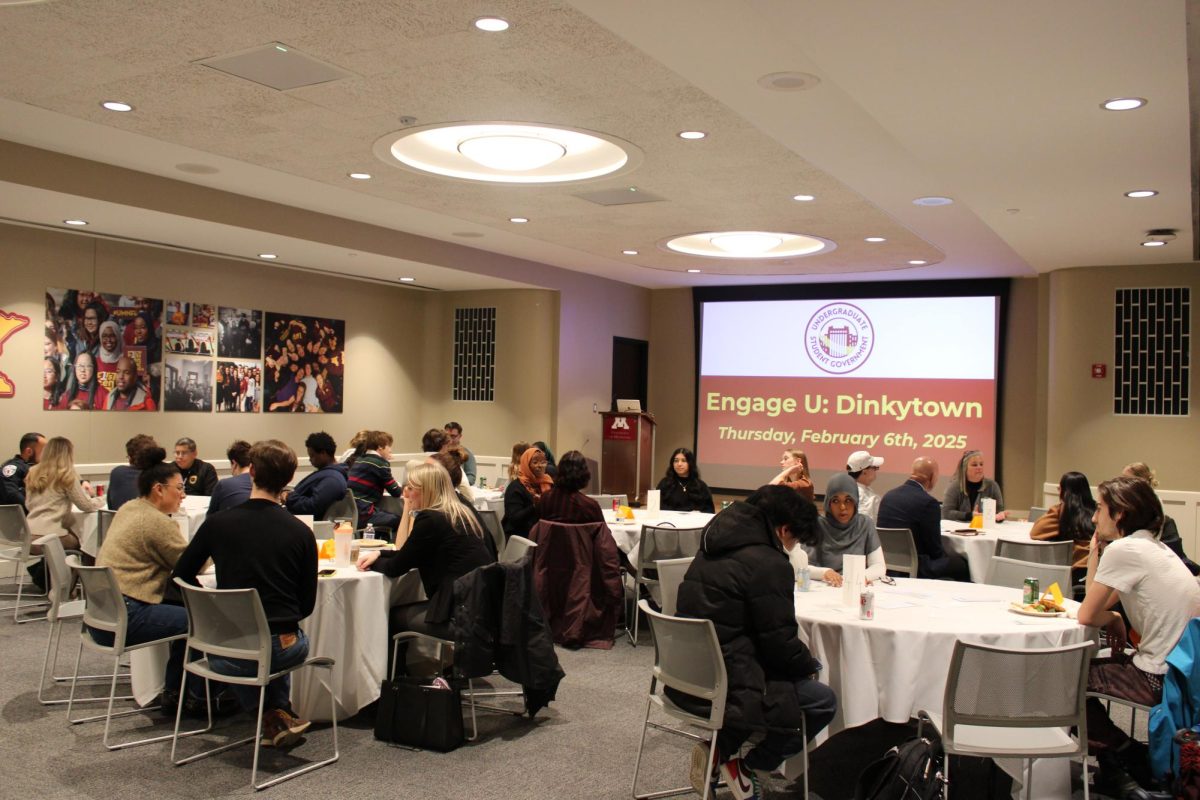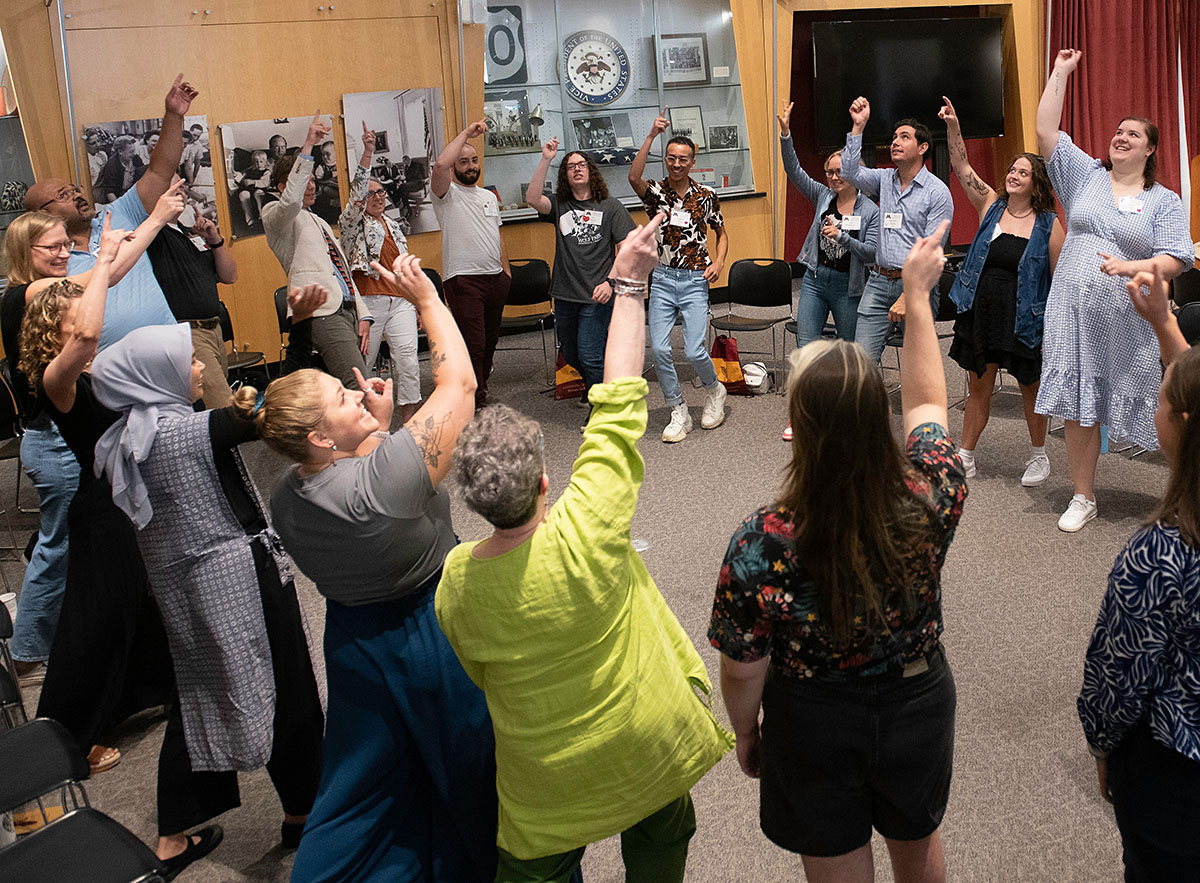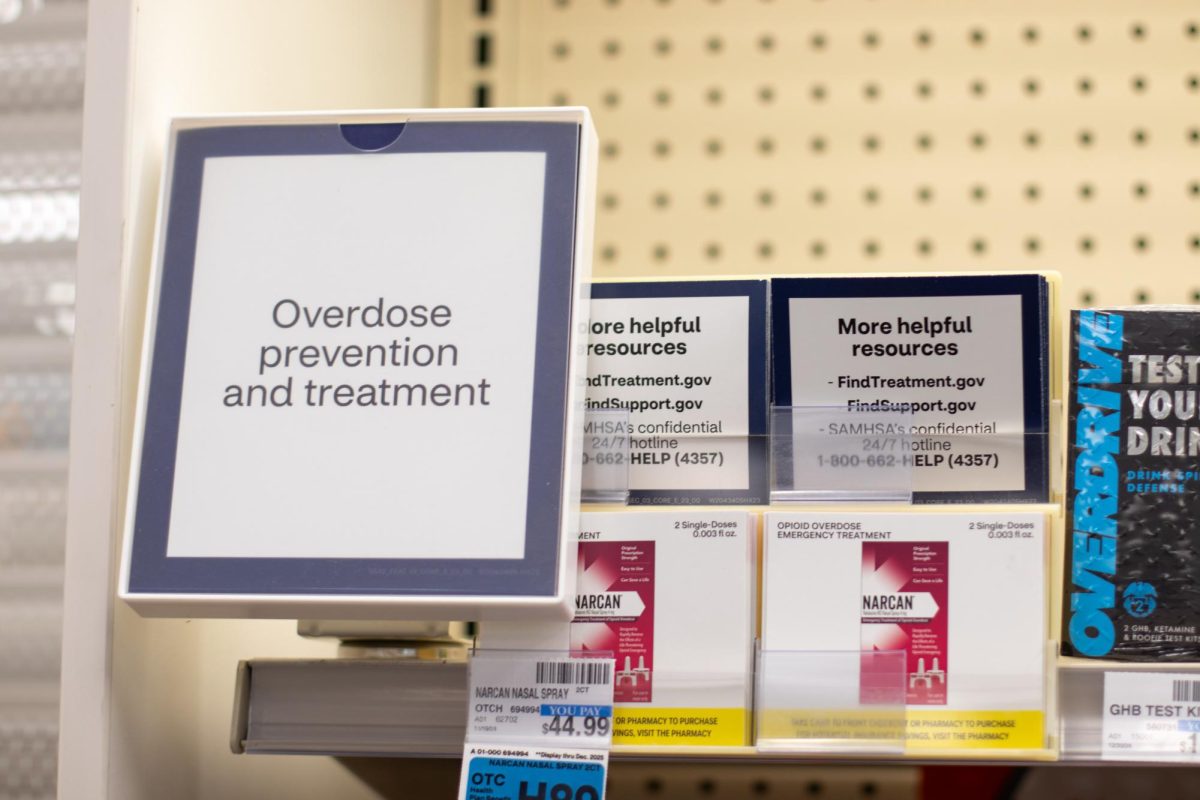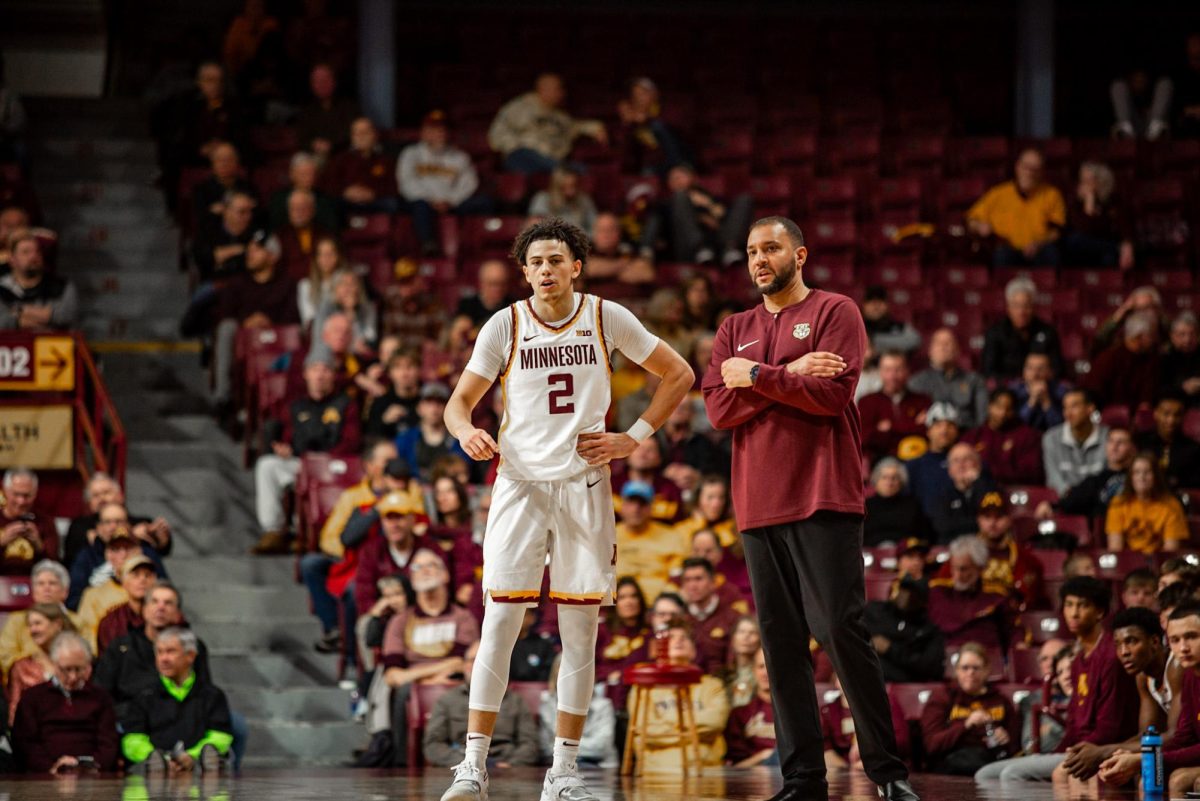Several University of Minnesota student groups petitioned to have poll questions on the ballot in this year’s campus elections, for which voting is currently open until Friday.
Poll questions appear on a ballot to gauge the collective opinion of voters on a particular topic or issue. This year, Students for Justice in Palestine (SJP), Students for a Democratic Society (SDS) and Young Democratic Socialists of America (YDSA) collaborated on one poll question, while the Undergraduate Student Government (USG) petitioned their own questions.
The SJP, SDS and YDSA question
The poll question from SJP, SDS and YDSA asks students, “Shall the University of Minnesota sever ties with companies complicit in war crimes and human-rights violations, war-profiting companies that recruit students on campus, and study abroad programs in Israel?”
Omar Aly, SJP’s social media and marketing chair, said this is the third time SJP has brought a question to the ballot on the University cutting ties with companies involved with Israel. SJP, along with other groups, first petitioned on the topic in 2016 and 2018.
Aly said the 2018 poll question, which asked if the University should cut ties with companies complicit in war crimes, was the most voted-on in University history. Despite the question being approved, Aly said University administration did nothing.
Aly added he hopes the war in Gaza will put greater pressure on University administration to respond this time.
Merlin Van Alstine, an SDS member, said there has been greater engagement from the campus community on the issue in recent months than there was in 2018. Some students this academic year have boycotted companies on campus that have supported Israel, such as McDonald’s and Starbucks.
Van Alstine said the question is important to bring to students since their tuition dollars help fund these companies.
“[ A University administrator] recently met with the Israeli diplomat, and it just shows that they really don’t care about their students whose family has literally been killed in Palestine,” Van Alstine said. “They’d rather be lining their pockets with more money than to actually stand on the right side of history.”
Aly said the collaboration between SJP and the other groups is meant to show students how the issue goes beyond conflict in Palestine.
Aly said the poll question references companies complicit in human rights violations in several countries, including Palestine, Mexico, Somalia, Yemen, Iraq and Pakistan, that have a big student representation on campus.
“This is also your struggle as well,” Aly said.
The USG questions
Unlike other student groups with poll questions on the ballot, USG petitioned two questions.
USG’s first question asked, “Do you want a commitment from the Office of the University President to make countering Food Insecurity a Presidential priority, including a strategy to establish a break-even affordable grocery store on the Twin Cities campus?”
This question comes in partnership with the creation of USG’s Food Insecurity Ad-Hoc Committee, which aims to combat food insecurity issues on and around campus. A long-term goal of the committee is to introduce an on-campus break-even grocery store.
USG also posed a question asking students if they would want to increase the USG student services fee by $1.18 to better support student group event funding and advocacy, according to USG Chief Financial Officer Sumaya Mohamed.
Mohamed said USG has recently had limited funds. USG received $66,000 in funding requests this academic year alone, though it only has a $30,000 budget for its grant funding, according to Mohamed.
This question only appears on the ballots of undergraduate students.
Mohamed added the proposed funding increase would allow USG to be more effective in its advocacy efforts, with upwards of $35,000 going back into the hands of students.
“I really just hope to see engagement with that question so we have the necessary platform to then be able to serve [students] in administrations to come,” Mohamed said.
Not every group was successful
Student groups need to gather 1,000 petition signatures in order for their question to appear on the ballot, making the process difficult for groups who do not focus considerable energy on it, according to the campus elections webpage.
Students for Climate Justice (SCJ) petitioned a question asking students if the University should adopt a zero-waste plan, according to SCJ member and treasurer Gracelyn McClure.
The University currently has a goal of reaching 90% waste diversion, meaning only 10% of all waste generated on campus would go to the Hennepin Energy Recovery Center (HERC). The University’s Twin Cities campus is currently at 55% and lacks a concrete plan with steps in place for how to reach 90%, according to McClure.
McClure said the county has put forth efforts to shut down the HERC, which is an incinerator, but there is not a specific timeline. McClure added SCJ wanted to ensure campus waste does not go to another incinerator or landfill once the HERC is shut down.
According to McClure, a poll question is the first step in ensuring the city of Minneapolis moves toward zero waste, given the campus’s prominent role in the city’s aggregate waste.
McClure said SCJ’s efforts failed because they were too hurried, with the group making its decision to petition on the day it was due. McClure added SCJ petitioning again next year is “definitely a possibility.
“I think it really depends on whether or not we see action from the regents and from the sustainability office within this next year,” McClure said.


